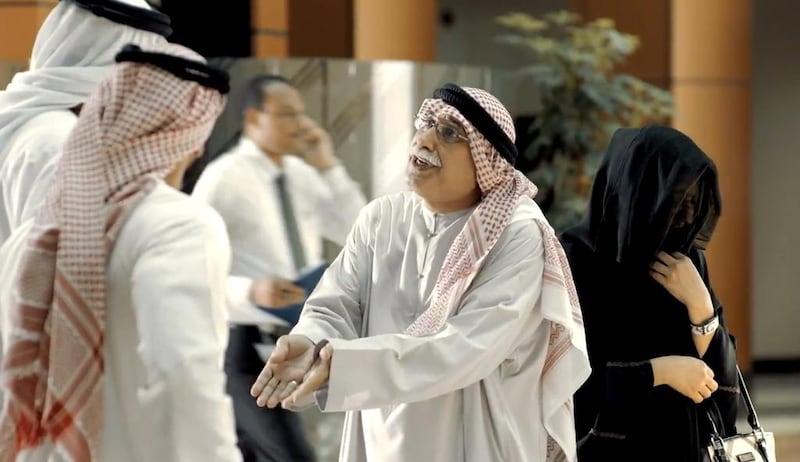ABU DHABI // A film that depicts an elderly man and his daughter hunting for strangers to serve as witnesses to her divorce is not the latest television crime drama.
Instead, it was made to warn the public against perjury, and was one of many short films produced by Abu Dhabi Judicial Department to improve the public’s understanding of the law.
The films send legal messages in an effective, non-traditional way, said Jaafar Alhashimi, director of the department’s media centre.
During a seminar in the capital this week, he gave a presentation highlighting the department’s efforts to communicate with the public.
“When we try to create legal awareness with children, it is not easy because laws are dry, so we try to explain through using animated characters,” said Mr Alhashimi.
An example was a show featuring an idealistic boy, Sultan, and his troublemaker friend, Bakheet, who often broke the rules and had to face the consequences.
In addition to these cartoons, prosecutors and judicial officials conducted regular visits to schools to speak directly to pupils about legal trends.
“When we are present at exhibitions, the parents come to us and request that we highlight in our way a legal message that they are trying to explain to their children but were not able to deliver it to them,” said Maryam Al Braiki, head of media coordination at the judicial department.
Children and teenagers were divided into three age groups so they could be given messages that were relevant to them.
“We teach them how to protect themselves, and what crimes they could get involved in,” said Ms Al Braiki. “They might think swearing is something normal but we explain to them that they could get punished under the law.”
Other tips included how to address a judge and what to wear to court.
“When a certain campaign plan does not reach its desired results, we survey the people to get tips on what message is more effective to them, and we move plan B and C if needed,” she said.
Hafeth Al Abri, head of social media for the department, said campaign topics were chosen based on persisting legal trends or national events occurring at a certain time.
“Now would be a good time to revisit cyber crime awareness campaigns,” said Mr Al Abri.
“During the Yemen war there were rumours about the names of martyrs and we wanted to spread awareness against those rumours,” he said. “So we started tweeting about the legal penalties of spreading rumours.”
Following the official launch of the department’s social media accounts, there has been a visible decrease in certain crime trends.
“I do not have the figures but when we compared, they were less,” said Mr Al Abri.
Another example is Emiratis publishing videos of illegal acts conducted abroad. Such cases could be taken up by the attorney general, and the person could be arrested upon return to the country.
“We have not heard of such offences repeated this summer, like Emirati youth pulling stunts with their cars in European countries and broadcasting it,” he said.
hdajani@thenational.ae







